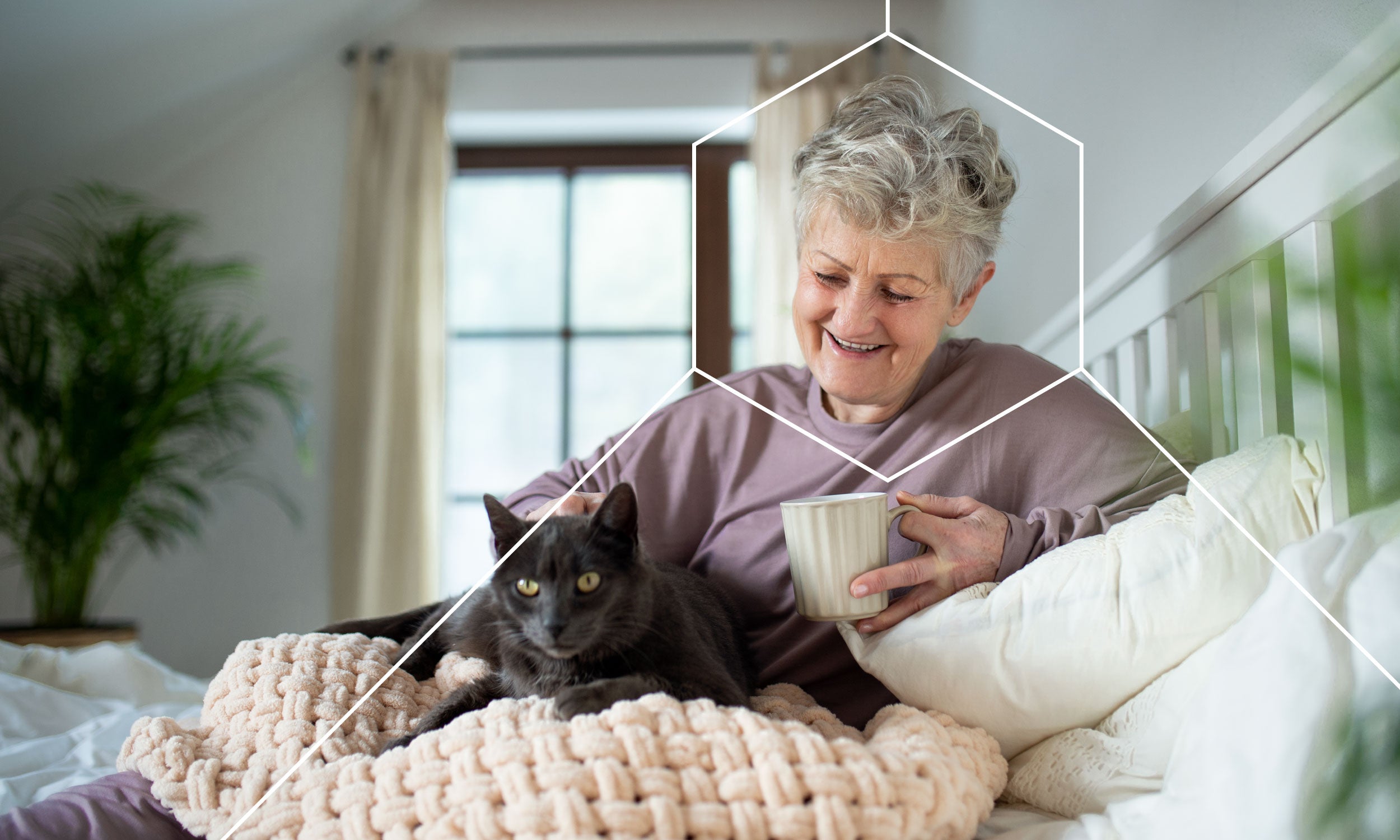
Aging in place is a popular alternative to checking in to a nursing home or care facility. Knowing the benefits of aging in place and how you can make it easier for a loved one can help tremendously. Today, we will be talking about what aging in place is, whether or not it’s the best option, and the benefits of aging in place.
Why Is Aging in Place Important?
As your loved ones get older, a difficult conversation becomes more and more inevitable. Should you place them in residential care, and if so - when? The reality is, 90% of American seniors wish to live at home for as long as possible. Aging in place is the desired outcome, and there are several advantages:
- Maintaining independence - Aging in place allows seniors to maintain a level of freedom not possible at a residential care facility. While they may need help from caregivers, family, or friends, they still have a level of independence that can help their cognitive function
- Familiar setting - Your home gives you a sense of comfort, familiarity, and security. Aging in place allows seniors to stay at home where they’re familiar with their surroundings
- Healthier and safer environment - A large reason why 90% of seniors prefer aging in place rather than checking into a facility is they believe it will be a safer option. Some studies have found that nursing home residents have worse health outcomes than those who choose to age in place
- Cost - Care facilities can be an expensive burden on the entire family. A private room at a nursing home can cost upwards of $75,000 per year. Those costs can climb depending on the level of care needed
It’s important to understand the pros and cons of both aging in place and checking into a care facility.
How Can I Help Seniors Age in Place at Home?
Seniors are still going to need some help even when they choose to age in place. By helping with day-to-day activities, you can make their lives much easier. Below are some of the things you can do to help support a senior who is aging in place:
- Personal care - Bathing and getting ready for their day can be difficult for seniors
- Household chores - Keeping the house clean, yard work, and grocery shopping
- Meals - Ensuring seniors are eating nutritious meals is important
- Money management - It’s important to ensure seniors stay on top of their bills and health insurance
Helping a senior age in place with home care can make their lives much more manageable.
What is a Private Caretaker?
Choosing to age in place over a care facility doesn’t mean your loved one doesn’t need any professional care. A private caretaker can help with all of the things we mentioned above. Private caretakers are also known as private duty in-home caregivers or live-in caregivers and help seniors in their everyday lives.
A caretaker can also help family members. Helping a senior with day-to-day activities can be difficult for anyone - especially someone with an already busy schedule. A private caretaker takes care of the things you would otherwise have to take care of.
Are There Any Programs To Help Seniors Stay In Their Homes?
Depending on where you live, there may be programs put in place by the local government to help seniors stay in their homes. The Division of Aging Services (DAS) administers programs throughout the country. Some research will be required on your end to determine whether or not any of these programs are offered in your area. Here are some of the things these programs help with:
- Help at home
- Nutrition and wellness
- Caregiver programs
- Protecting rights and safety
- Medicare and insurance help
These programs help make life easier for those aging in place.
How to Help Elder Parents Stay In Their Home
When it comes to aging in place, preparation is incredibly important. Think about how you have to baby-proof your home when you’re expecting. It may seem belittling, but you need to do the same with your elder parents. Some of the things you can do to help aging in place and quality of life include:
- Installing a carbon monoxide detector
- Ensure medications are labeled
- Request medication blister packed to reduce confusion
- Clean out cleaning supplies and keep a small number of cleaning products
Preparing for these things can help in the long run.
What Are the Disadvantages To Living in Senior Living Homes?
We’ve already mentioned several times that 90% of seniors prefer aging in place over living in a senior home. There are several reasons why that’s the case. You have the advantages of staying home, but there are also numerous disadvantages of elderly homes. Some of those disadvantages include:
- Price
- Privacy
- Insufficient medical care
The harsh reality is that elderly homes are often too understaffed to deal with each resident’s personal needs.
Supplements Can Help
Who likes getting older? Taking care of your body can help limit the adverse side effects of aging, improving memory, heart health, and cognitive function. One of the best ways to do this is through a process known as autophagy. During autophagy, your body replaces older, damaged cells with new and healthy cells.
You can help induce this process with spermidine. Spermidine can help induce autophagy, but it can be challenging to get your recommended daily intake of spermidine through your diet. You can maximize the results when you pair the diet with spermidine supplements.







